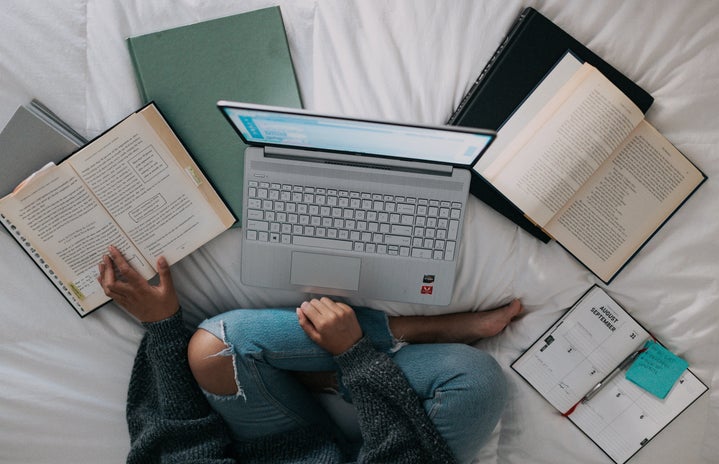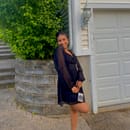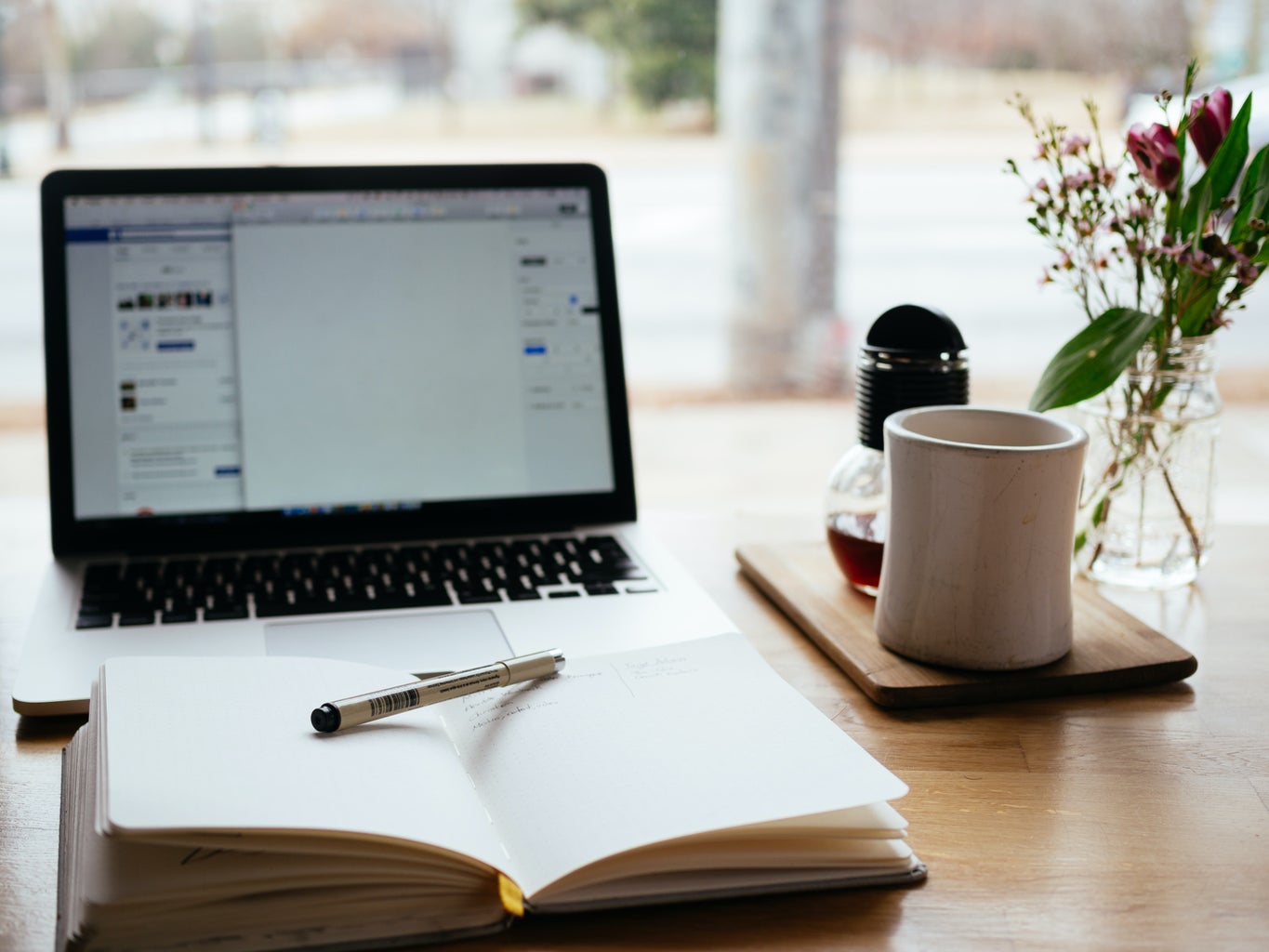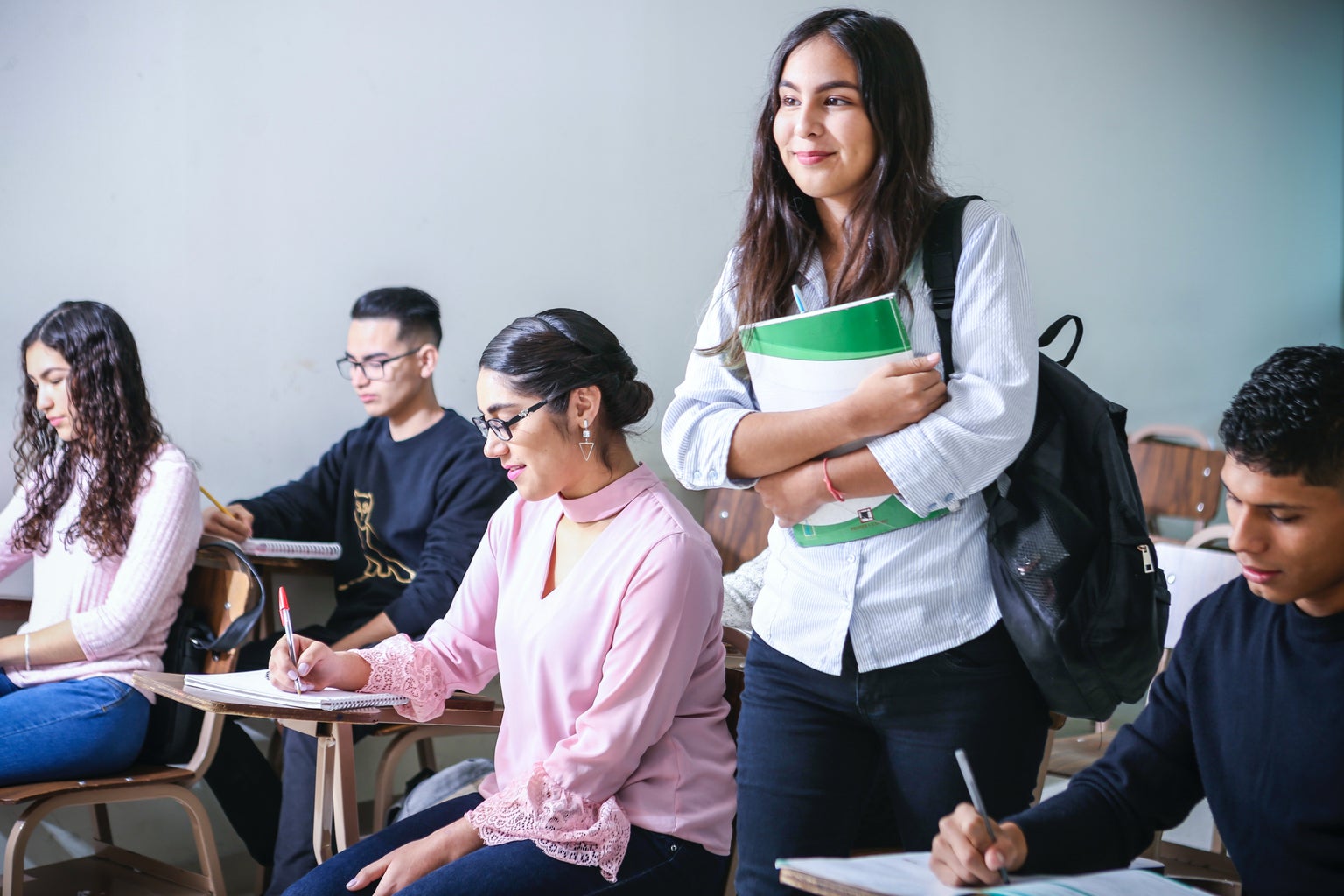I love school, and that may make me sound really nerdy, but I think learning is one of the most valuable things that we can do. As a junior in college, I now have a good pattern of what works and what doesn’t work for me. Although everyone learns differently, I wanted to share the tips that I have accumulated over the semesters on how to do your absolute best.
The Basics
Before sitting down to learn the content, there are a few basic parts that you should figure out first.
- Know what you are studying
-
When you are starting to study, whether it is for a test, or you are just keeping up with the class, you should know what the material you are studying covers. I recommend making an overview of what needs to be covered: things like vocabulary, key terms, or maybe even each chapter. Once you have the main subjects down, start breaking them down into specific items that you need to know. So when you actually start learning the content, you understand how every single thing you are studying fits into the larger picture. This outline can also serve as a checklist later if you want to quiz yourself.
- make a realistic timeline
-
Once you know the topics to study, plan out what this is going to look like leading up to your test, lecture, or whatever the case may be. For exams, specifically, I like to leave the morning of and the day before solely for revision. That means, starting from the day you plan, figure out how you want to split your time, and how much of it you would spend on each section. As important and as helpful as this is, it is absolutely crucial that you are realistic about what you are able to do. If this timeline isn’t realistic, it can create more harm than good. It might make you feel as though you are behind, or that you are not being as productive as you need to be, which wouldn’t be the case if you planned realistically.
- break down the daunting sections
-
Now, when you start looking at sections that you need to spend more time on because of its intricacies or difficulties, consider taking this topic and breaking it down further, into smaller sections. This helps you feel like understanding and completing this section is more attainable. It also ensures that you aren’t skipping over any parts because you feel overwhelmed by the size of the section.
- Figure out what Environment you study Best in
-
Now that you have figured out the sections and timeline, we need to pick the setting. Everyone learns differently and in different environments. Figure out what works best for you before you sit down and start studying. Some thrive in loud environments like coffee shops, and others prefer quiet places with fewer distractions. Make sure to put thought into this location in order to optimize your study session. This will likely set the tone for your productivity and success, so pick wisely!
- take breaks and reward yourself
-
This last one might seem insignificant in relation to the other parts, but make sure you are taking breaks and rewarding yourself. Nothing productive is going to get done if you are not well-rested and if you are overworked. Allow yourself to recuperate after absorbing large amounts of knowledge and one way to do that is by consuming good and healthy foods. Rewarding yourself is also a good way to keep yourself motivated and productive. Maybe tell yourself that after finishing two sections of work or after an hour, you will get yourself a little treat. Obviously, we need to use this in moderation and not often enough where the reward now becomes redundant. A treat is called a treat because it is fun and rare.
The Content
Now this is the hard part, the part where we need to focus and put our all into learning and retaining information.
- active recall
-
I swear by active recall, so much that I have recommended it to my friends and they have come back to tell me that it actually works. Obviously, I wasn’t the one who created this technique, but let me explain this technique in a really simple way. Since the goal is to know everything about a term, you write down everything you can remember about said term, over and over again until you aren’t missing any pieces of information. This seems daunting and tedious, I know, but by the time you are done with it, you will see how effectively this works. The way I like to do this is by writing the term or concept down and then writing everything I know about it without referring to my notes. Once I’m done, I will use a different colored pen or highlighter, something to make a distinction from what I had written down already and fill in all the information I am missing. I keep repeating this process until I am not missing any details.
- practice, practice, practice!
-
Now, practicing might seem like the same as active recall, but I wanted to make a distinction for the STEM subjects, like math and subjects that require calculations. This means that you would need to know how to apply the concepts you know to different problems, and the only way to get better at that is by practicing. Practice until you don’t make any mistakes. Obviously, this method would vary from person to person and subject to subject, but the main idea is the same.
- quizzes
-
This one might seem repetitive again, but it ensures that you actually know all the information that you need to know. Using flashcards or asking someone else to quiz you can really show how much you do and don’t know. You might be thinking, “Isn’t that the same thing as active recall?” Although they are very similar, you are controlling your own active recall. You get to decide what you think is important and not. But if you use a more rigid format, something that doesn’t allow as much leeway, then you know for sure that you are learning what you intended.
- go to class!
-
I know everyone tells you to go to class, but let me tell you why I, as a junior, am recommending that you go to class. I think it is important first to make a distinction between classes, small ones, and large ones. When I say “small” classes, I mean a class where the professor isn’t lecturing as much, and it is very important for you to be there in order to absorb the knowledge. And when I say “large” classes, I mean lecture-heavy classes where there isn’t any opportunity for discussion or group work. Smaller classes tend to be more important, saying from experience, as the material tends to be more complicated. Larger classes, again from experience, tend to be introductory classes and general education requirements, those that are generally easier. I mention this, not to tell you what class to skip, but rather to help you understand how to make the best use of the time that you are in class. Even if you feel like the lecture is boring, or even redundant, then take that time to review the information you are covering. Maybe going to class will help you set in stone the topics you are studying. And if you are in a smaller class, you can interact with your professor, teaching assistant, and peers. Share your ideas and hear what your classmates are doing to succeed. Hearing new and unexpected perspectives sometimes are the basis for the best pieces of advice.
- talk to your professor
-
Nine times out of 10, your professor wants to help you succeed and make the most out of the class. Reaching out to them with questions or even looking for advice can never hurt. Your professor, hopefully, will be able to provide you with insight on how to do your best. They will also see that you are truly trying to do your best, which might compel them to help you. It definitely seems scary, but your professors are people too. Besides, what is the worst thing that might happen? They might tell you that they can’t help, but it’s not going to affect you negatively.
Takeaways
The most important part of getting into a routine of studying is figuring out what works for you! Everyone is different, which means the way you learn might be different from the way your best friend learns. Be true to yourself and your goal!




